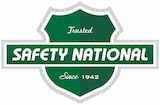If you’re ringing in the new year in Utah, you may want to be extra careful about how much you drink. The state will soon be enforcing the most-stringent anti-drunk driving law in the U.S.
On Dec. 30, a new state law will limit drivers’ blood alcohol content (BAC) to .05 grams of alcohol for every 100 milliliters of blood. That means that a 160-pound man who consumes two drinks in an hour, or a 100-pound woman who just has one, would reach that limit. The consequences for getting caught while driving under the influence (DUI) won’t change—drivers can have their licenses suspended, be slapped with fines of more than $1,000, or go to jail.
Enactment of this law, the most conservative in the country, is not the first time Utah has been a trailblazer. In 1983, it became the first state to lower the BAC limit from 1.0 to 0.08. Over the next 20 years, every other state would follow suit. There’s little dispute that this was a good move—in that time, traffic deaths related to alcohol dropped by 10 percent, as NPR reports. There’s a chance, then, that Utah could be setting the US standard yet again.
Not everyone in Utah—where 60 percent of the population belongs to the Church of Latter Day Saints, whose members are directed to abstain from alcohol—is on board. The state has a long history of strict policies surrounding the sale and consumption of alcohol. Bar and restaurant owners say the new law will drive away customers and that tourists will be too worried to imbibe. A writer at the Salt Lake Tribune notes that, “Year after year, the data clearly shows the same thing: Crashes involving drivers in that range [with a BAC between 0.05 and 0.079] are exceptionally rare.” The American Beverage Institute has criticized the law, claiming that it penalizes moderate drinkers without affecting intoxicated drivers who would be over the legal limit anyway.








